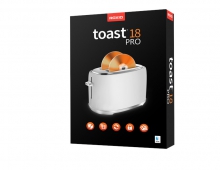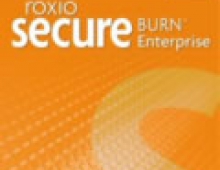
Roxio: Burning Its Way to Bigger Things?
These days, it's pretty rare for any company, let alone a high-tech outfit, to raise its guidance for revenues and earnings per share. But that's just what Roxio, which makes popular CD-burning software, did on Feb. 25. Thanks to its acquisition of Toronto software company MGI and brisk holiday sales, revenues for fiscal 2002 [ending Mar. 30] are expected to total $142 million, up 5% from its original projection of $135 million. Earnings will come in at 91 cents per share, up from 89 cents forecast earlier.
The fact that the digital-media sector is littered with failures makes Roxio's performance all the more impressive. The company, which went public in May, 2001, has been profitable throughout its six-year history. And analysts expect Roxio to keep growing. Its products, which include software for CD and DVD burning, photo and video editing, and data recovery, dominate some of the high-tech sector's most explosive markets.
The number of CD burners will increase from 120 million in 2001 to 546 million in 2005, according to market research firm International Data Corp [IDC]. DVD burning is also expected to take off. In 2001, IDC reports just 2.4 million DVD burners were sold. By 2005, that number will be higher than 72 million, a compound annual growth rate of 135%. Those trends could translate into big sales and even bigger profits for Roxio. With the stock trading at around $15, as of Feb. 22, analysts say now could be a good time to buy
Roxio isn't resting on its laurels. ``The good news is we own the market. The bad news is that there are 400 million new customers coming who don't know it,'' says CEO Chris Gorog. So, the company has launched a $20 million advertising campaign to establish itself as the ``Nike of CD burning.'' The print and broadcast ads depict people -- mostly young men -- using Roxio software to improve their lives. One ad, titled ``Scratch and Burn,'' shows a DJ burning vinyl records to CD. Another shows a happy father catching his kids in action with a digital camera.
Though some analysts disapprove of the company's splashy -- and expensive -- campaign, Gorog says marketing is critical. ``Brand creates a huge barrier to entry for competitors,'' he insists. ``If we have mind share as well as market share, it will be difficult to dislodge us.''
Roxio is also diving into new, growing markets of digital-photo and video-editing software, as well as data recovery. Its $35 million acquisition of MGI brought in popular consumer products PhotoSuite and VideoWave. ``Before MGI, they had a great niche but not much else,'' says Michael Kim, a digital-media analyst at Robertson Stephens. More important for investors, that deal also boosted the bottom line. Kim estimates that the MGI purchase will augment revenues by $23 million and add 5 cents to earnings per share in fiscal year 2003, which begins in April, 2002.
The number of CD burners will increase from 120 million in 2001 to 546 million in 2005, according to market research firm International Data Corp [IDC]. DVD burning is also expected to take off. In 2001, IDC reports just 2.4 million DVD burners were sold. By 2005, that number will be higher than 72 million, a compound annual growth rate of 135%. Those trends could translate into big sales and even bigger profits for Roxio. With the stock trading at around $15, as of Feb. 22, analysts say now could be a good time to buy
Roxio isn't resting on its laurels. ``The good news is we own the market. The bad news is that there are 400 million new customers coming who don't know it,'' says CEO Chris Gorog. So, the company has launched a $20 million advertising campaign to establish itself as the ``Nike of CD burning.'' The print and broadcast ads depict people -- mostly young men -- using Roxio software to improve their lives. One ad, titled ``Scratch and Burn,'' shows a DJ burning vinyl records to CD. Another shows a happy father catching his kids in action with a digital camera.
Though some analysts disapprove of the company's splashy -- and expensive -- campaign, Gorog says marketing is critical. ``Brand creates a huge barrier to entry for competitors,'' he insists. ``If we have mind share as well as market share, it will be difficult to dislodge us.''
Roxio is also diving into new, growing markets of digital-photo and video-editing software, as well as data recovery. Its $35 million acquisition of MGI brought in popular consumer products PhotoSuite and VideoWave. ``Before MGI, they had a great niche but not much else,'' says Michael Kim, a digital-media analyst at Robertson Stephens. More important for investors, that deal also boosted the bottom line. Kim estimates that the MGI purchase will augment revenues by $23 million and add 5 cents to earnings per share in fiscal year 2003, which begins in April, 2002.


















